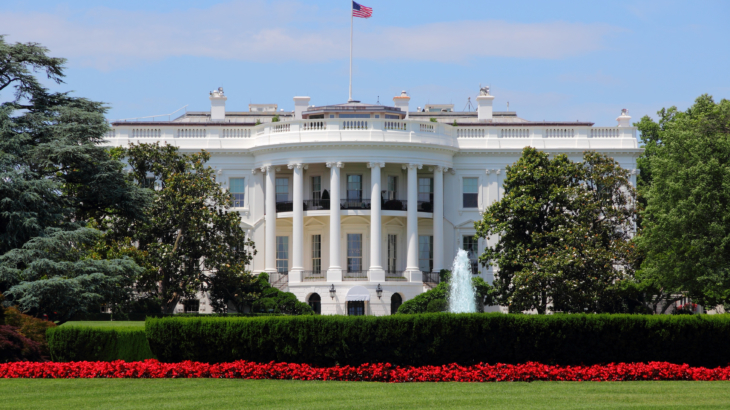
Essay Read By Constituting America Founder, Actress Janine Turner
“Every man ought to be amenable for his conduct, and there are no persons so proper to complain of the public officers as the representatives of the people at large. The representatives of the people know the feelings of the people at large, and will be ready enough to make complaints. If this power were not provided, the consequences might be fatal. It will be not only the means of punishing misconduct but it will prevent misconduct. A man in public office who knows that there is no tribunal to punish him may be ready to deviate from his duty; but if he knows there is a tribunal for that purpose, although he may be a man of no principle, the very terror of punishment will perhaps deter him.” – James Iredell, U.S. Supreme Court Justice placed by George Washington, North Carolina Ratification Convention, July 24, 1788
The United States Constitution places members of the federal judiciary in a unique position. Article III stipulates that “the Judges, both of the supreme and inferior Courts, shall hold their Offices during good Behaviour.” Unlike members of Congress or the President who are elected for a set term length, all federal judges are appointed for the term of good behavior. Practically, this means federal judges are appointed for life. The only way to remove a federal judge from office is through impeachment by Congress, which is limited to the cases of “Treason, Bribery, or other high Crimes and Misdemeanors.”
The logic of life tenure for judges was best explained by Alexander Hamilton in Federalist No. 78. Here, Hamilton declared that
[t]he standard of good behavior for the continuance in office of the judicial magistracy, is certainly one of the most valuable of the modern improvements in the practice of government. In a monarchy it is an excellent barrier to the despotism of the prince; in a republic it is a no less excellent barrier to the encroachments and oppressions of the representative body. And it is the best expedient which can be devised in any government, to secure a steady, upright, and impartial administration of the laws.
Life tenure upon appointment creates independence for the judiciary in the administration of the laws. This ensures that the laws are applied in a consistent and fair manner. Even in a republican government, the individuals who comprise the legislature are human beings who can succumb to despotic passions. Judicial independence is just as useful a safeguard from oppression in a republican government as any other.
The institutional capacity of the judiciary makes life tenure especially necessary. Hamilton explained that the judiciary lacks Congress’ power of the purse and the President’s power of the sword and wrote that the judiciary “may truly be said to have neither FORCE nor WILL, but merely judgment.” The judiciary is comparatively weaker to the other two branches of government because it lacks the will to make laws as well as the force to enforce the law. There is a risk that the political branches could ignore the Constitution and the judiciary could be too weak to resist their usurpations.
In order to protect the judicial branch from the greater powers of the other branches, life tenure is necessary to create judicial independence. Hamilton stated that
as, from the natural feebleness of the judiciary, it is in continual jeopardy of being overpowered, awed, or influenced by its co-ordinate branches; and that as nothing can contribute so much to its firmness and independence as permanency in office, this quality may therefore be justly regarded as an indispensable ingredient in its constitution, and, in a great measure, as the citadel of the public justice and the public security.
Federal judges are appointed through a political process where they must be nominated by the President and confirmed by the Senate. Once judges are appointed, however, they have life tenure so that they do not need to rely on the political branches for any further security. Life tenure allows judges to be independent from politics so that they have the security to stand up against the political branches when necessary.
Judicial independence is beneficial under all forms of government but it turns out that it is especially necessary under the American form of government with a written Constitution. For Hamilton,
[t]he complete independence of the courts of justice is peculiarly essential in a limited Constitution. By a limited Constitution, I understand one which contains certain specified exceptions to the legislative authority; such, for instance, as that it shall pass no bills of attainder, no ex-post-facto laws, and the like. Limitations of this kind can be preserved in practice no other way than through the medium of courts of justice, whose duty it must be to declare all acts contrary to the manifest tenor of the Constitution void. Without this, all the reservations of particular rights or privileges would amount to nothing.
A written constitution embodies the fundamental will of the people for the government. There is no point to writing down a constitution if the written limits are not enforced. The task of enforcing constitutional limitations cannot be left to Congress or the President because each would naturally be inclined to favor itself. The judiciary must exist as a third, independent branch that stands outside the political process to enforce the Constitution’s limits. Hamilton explained that it is natural that the judiciary fulfills this role because “[t]he interpretation of the laws is the proper and peculiar province of the courts.” Courts interpret and apply laws as part of their normal function and so it makes sense that it will be the judiciary that interprets the Constitution as the fundamental law of the land in legal cases.
Federal judges are given excellent job security because they are entrusted with a great responsibility. Article III ties life tenure to the specific office that is held, which is that of a judge on a court. Good behavior for judges is understood in the sense of carrying out one’s duties in a judicial manner. Judges act consistently with their constitutional charge when they remember that they are judges tasked with the application of the Constitution and the laws to particular legal cases. Judges stray from this responsibility when they seek to exercise the functions of legislating or executing laws and impose their will rather than the Constitution. Impeachment by Congress remains as a check on judges who misuse their office. Good behavior requires judges to resolve legal cases and invalidate government acts when necessary to preserve the sanctity of the Constitution.
 Benjamin Slomski is Assistant Professor of History and Political Science at Ashland University.
Benjamin Slomski is Assistant Professor of History and Political Science at Ashland University.
Click here for First Principles of the American Founding 90-Day Study Schedule.
Click here to receive our Daily 90-Day Study Essay emailed directly to your inbox.



 Essay Read by Constituting America Founder, Actress Janine Turner
Essay Read by Constituting America Founder, Actress Janine Turner https://en.wikipedia.org/wiki/Mayflower_Compact
https://en.wikipedia.org/wiki/Mayflower_Compact